Cool reads for dog days
Chill out with these recommendations from the English department.


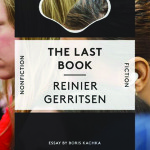
The Last Book by Reinier Gerritsen
[David Blake]
Working on the premise that physical books will soon disappear, Dutch photographer Reiner Gerritsen traveled to New York City to take pictures of people reading on the subway. The result is a beautiful, elegiac volume that reminds us how much reading and books are part of our visual landscape.
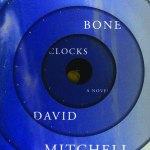 The Bone Clocks by David Mitchell
The Bone Clocks by David Mitchell
[Jo Carney]
Mitchell’s book is like his previous novel, Cloud Atlas, in structure and style: a sprawling but fast-paced novel that spans centuries and mindsets, but is united by a compelling protagonist, memorable characters, and irresistible storytelling. Except for gimmicky Harry Potteresque episodes in a couple of sections, The Bone Clocks is an impressively clever, fun read.
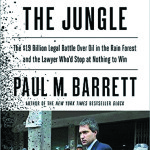 Law of the Jungle by Paul M. Barrett
Law of the Jungle by Paul M. Barrett
[Frank Erath]
Written by a Bloomberg reporter, this intriguing, complicated work draws the reader into a world of greed, corruption, and environmental irresponsibility that would be otherwise inaccessible to the average person. There are no good guys. Big oil is rapacious. Big government (in Ecuador) is on the take. And the crusading-to-save-the-rain forest attorney is uncontrollably ambitious. That combination makes for compelling reading.
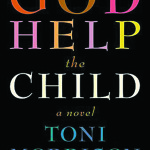 God Help the Child by Toni Morrison
God Help the Child by Toni Morrison
[Ellen Friedman]
A very fast read and deeply compassionate, Morrison’s new novel is a good companion for those who have read English faculty member Jess Row’s Your Face in Mine, because it, too, is about color and its complexities over time. And it’s also about love and families. What more could one ask for?
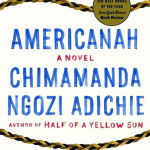 Americanah by Chimamanda Ngozi Adichie
Americanah by Chimamanda Ngozi Adichie
[Kathryn Ionata]
Intellectually challenging and highly readable, Americanah offers fascinating insights about American culture through the experiences of Ifemelu, a young Nigerian woman who moves to the United States and, for the first time, must contend with what race means.
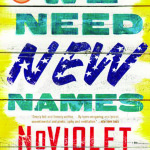 We Need New Names by NoViolet Bulawayo
We Need New Names by NoViolet Bulawayo
[Mindy McMann]
This first novel by Zimbabwean writer Bulawayo is set in the politically tumultuous and violent year of 2008 in Zimbabwe, and later in the U.S. when the protagonist, Darling, immigrates to “Destroyed Michigan.” We Need New Names is about the disappointments and challenges of being poor, black, and marginalized in both Zimbabwe and America, as well as about the price of immigration to achieve one’s dreams (which, at least in this book, remain illusory).
 I’ll Give You the Sun by Jandy Nelson
I’ll Give You the Sun by Jandy Nelson
[Emily Meixner]
I’ve read several young adult novels recently, but I’ll Give You the Sun, a story about twins (a brother and sister) whose lives are torn apart by tragedy, has been my favorite so far. The story moves back and forth in time—Noah narrating the past; Jude narrating the present—until both narratives are eventually reconciled. I loved how hopeful the story was in the end: Redemption, love, and forgiveness are real and possible.
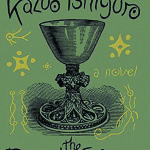 The Buried Giant by Kazuo Ishiguro
The Buried Giant by Kazuo Ishiguro
[Courtney Polidori]
A revision of the King Arthur legend set in 11th-century England, the novel is on its surface an archetypal hero’s journey about a knight who must slay a dragon to restore the land. Though Arthur is not a character, his dark shadow haunts a wounded country where Britons and Saxons, living in fragile peace, have lost their memories. The book explores the tension between collective remembering and forgetting—when is it better for a community to forget a traumatic event, and when should we acknowledge and remember atrocities?
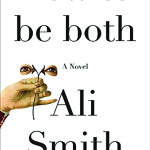 How to Be Both by Ali Smith
How to Be Both by Ali Smith
[Michael Robertson]
This dazzling, playful, experimental novel is divided into two parts—one centered on the Renaissance painter Francesco del Cossa, the other on George, a contemporary British teenager—that turn out to have much more in common than you might think. The novel was printed in two editions; one begins with the Renaissance section, the other with the contemporary one. I recommend you don’t try to choose which edition to buy; Smith wants to surprise and delight you, and she does. As soon as I finished the book, I immediately read it again in the reverse order. Both versions are sublime.
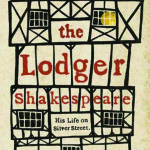 The Lodger Shakespeare: His Life on Silver Street by Charles Nicholl
The Lodger Shakespeare: His Life on Silver Street by Charles Nicholl
[Glenn Steinberg]
Starting with Shakespeare’s recorded testimony as a witness in a sordid court case over an unpaid dowry, Charles Nicholl researches and describes early 17th-century London, providing a fascinating window into the daily life of Shakespeare and his contemporaries. Speculative about Shakespeare, yes, but fun and full of material and cultural detail.
Main photo by BILL CARDONI
Posted on July 13, 2015

